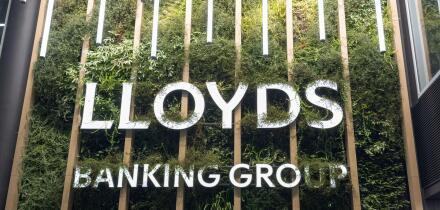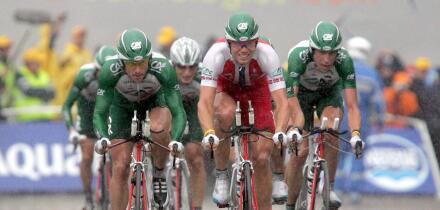
The European Investment Bank and KfW surprised markets on Tuesday, going head-to-head in the euro market and both pricing seven year deals.
Seven years was the tenor of choice in the currency this week, with a third issuer — Kommuninvest — also pricing a deal. The Swedish agency’s €500m green no-grow 2.875% May 2030 green bond came at 1bp over mid-swaps, 4bp tighter than initial guidance, and drummed up €2.5bn of final demand.
The issuer told GlobalCapital on Monday that it opted for an intra-day execution to get ahead of the competing supply expected the following day.
“Something doesn’t feel right about it,” said an onlooking SSA banker on Monday, after the European Investment Bank and KfW had mandated for their deals.
Investors did not seem quite so perturbed. The EIB raised €5bn via a 2.75% July 2030 trade that was priced at 4bp through mid-swaps after 2bp of tightening, paying 2.5bp-3bp of new issue concession, according to a banker close to the deal.
It attracted a €35.5bn order book. Allocations revealed buyers from the UK took the biggest chunk of the deal at 30%, followed by "the rest of Europe" at 28%, France at 16% and Asia at 14%. Banks were the largest investor group by type, taking 59%.
Meanwhile, KfW raised €3bn via a no-grow green May 2030 bond that came at 13bp through mid-swaps after 2bp of tightening from guidance. It paid 2bp in new issue concession, according to bankers on and off the deal. Demand was over €8.5bn on Tuesday morning. Final books, however, dropped down to over €6.4bn including €550m of joint lead manager interest. The issuer said it saw some “trading-oriented accounts” leave the book after spread tightening.
Right price?
Market participants gave varying accounts of where KfW’s bond traded in the secondary market after pricing on Tuesday and throughout Wednesday. A lead manager said it had been stable at reoffer on both Tuesday and Wednesday, while a banker off the deal said he saw it 1bp wider on Tuesday afternoon and 0.5bp wider than reoffer on Wednesday. The issuer said it was trading 0.5bp tighter than reoffer on Wednesday morning.
“The idea of price discovery was extremely straightforward,” said a banker close to KfW’s trade. “KfW issued a long seven year in March that was trading around mid-swaps minus 15bp, so fair value was easy to calculate.”
The decision to come out with guidance of swaps minus 11bp and start with 4bp of new issue concession was similar to how other deals have been executed this year, he explained. “Obviously it was a €3bn no-grow trade in green format so we went for a normal, straightforward KfW process of 2bp of tightening and a final new issue concession of 2bp.”
The same banker noted that he had the EIB’s trade starting at 5bp of new issue concession when it came out on Tuesday morning, at guidance of 2bp through swaps.
“The EIB offered a larger new issue concession and a 9bp differential,” said the KfW bookrunner. “From our perspective, even though KfW was a limited size green bond, we felt first coming with 4bp of concession was the sensible thing to do. But obviously, it’s a seven year maturity and the EIB is a liquid name to have followed and it got a good book. But we’re talking different zip codes here and they [EIB] were going for size.”
In April, the German issuer priced a €3bn 2.875% June 2033 trade at 7bp through mid-swaps after 1bp of tightening. The deal received mixed reviews after attracting a more modest final book of €5.1bn including a €900m lead manager sum.
While KfW’s most recent 10 year “obviously wasn't stellar”, the banker said he had similarly put fair value for that trade at 2bp from their curve. “I think that's quite standard for them,” he said. “Equally you've got to think that KfW’s last seven year in March priced at mid-swaps minus 8bp. That’s a material spread move, especially when you look at where the European Stability Mechanism, the European Union and the EIB are trading in similar or the same maturities.
“I think that does indicate that KfW has a good pricing reference in its secondary curve. It had also benefited from a flight to quality since March. We’ve had all these banking scares and swap spreads have widened. I think people are still prepared to pay a steeper price for KfW.”
Both the issuer and the banker said KfW benefited from a greenium of around 1bp.
The majority (90%) of the trade went to ESG investors. Buyers based in the Nordics made up the biggest chunk of sales by geography at 29%, followed by France at 16%, then Germany at 15%.
“It's a well-diversified investor base," said the KfW lead manager. "When you compare EIB to KfW it’s important to remember that the richness of the levels versus swaps is such that KfW does have a more limited investor universe but there’s plenty to go around, there just aren’t these inflated order books that there were in the past or that the other names get and which look a bit cheap optically.”
Sign of health
The banker said he thought it was a sign of “very healthy, well functioning market” that all three issuerscould bring seven year deals in the same week. Similarly in April, Germany brought a €5.25bn 2.3% February 2033 line on the same say that the European Union sold a €7bn no-grow October 2038 trade, generating final books of €14.8bn and €55bn respectively.
“There isn't a lack of available money out there," he said. "The timing is just more symptomatic of it being a slightly window-driven market where you've got these spikes of volatility, whether it's following a bank collapse or a major interest rate decision or some direction from the Federal Reserve or the European Central Bank.”
Jörg Graupner, vice-president, treasury funding at KfW, told GlobalCapital that starting with 4bp of concession was the appropriate path and that if the EIB had not been in the market it would have attracted more demand “possibly with the consequence to price tighter and could have started at mid-swaps minus 12bp”.
“But we had to consider that the EIB was active in the market," he said. "However, our aim is always to consider the interest of our investors as well. We landed at 2bp of new issue concession and we saw a very strong order book. The bond is trading 0.5bp tighter this morning [Wednesday].”
Björn Schlebach, senior funding manager at KfW, highlighted that due to the number of accounts and quality in the books, the deal attracted a near 90% ESG allocation, which for a benchmark transaction size was a record for the issuer.
“We were really happy about the green quality. We can see that demand is still growing…We really like the move from our traditional investor base to get greener and nearly one third of the allocations went into dedicated green portfolios or ‘dark green’ funds. From a green perspective, it really highlights the success of the transaction for us.”
Little concern
A banker close to the EIB’s trade said clients showed little concern about the extent of seven year SSA issuance on Tuesday.
“We didn’t receive any negative comments from clients complaining about having too much on screens at the same time," he said. "They’re used to busy days in SSAs and they know how to assess fair value and whether bonds have value for them.
“I think both transactions were very well received," he added. "Of course there’s a difference in book size and one might wonder whether KfW’s books suffered a little bit because of the EIB but having said that, I think KfW comfortably priced and they tightened by 2bp indicating strong demand. Both are performing well in secondary.”
A side-by-side comparison of order book sizes “doesn’t look great”, said the banker, but he warned not to draw too many conclusions from those statistics. “I’m not sure KfW would have a got a significantly higher book if it had come out on another day,” he said. “I think KfW is very expensive. It’s the most expensive name in the curve and I think the book size is more a reflection of that. They’re a bit of a victim of their own success in that they have an expensive curve, fortunately or unfortunately, which means that they’re expensive versus other names.”
On Wednesday evening the EIB was trading between mid-swaps minus 6.5bp and minus 7.5bp and KfW at mid-swaps minus 15bp.
The European Investment Bank was contacted for comment.






